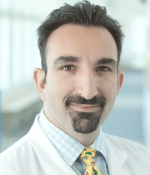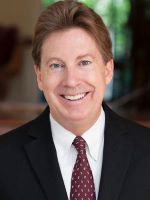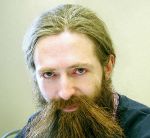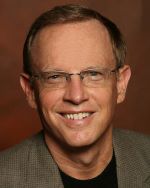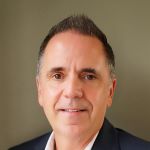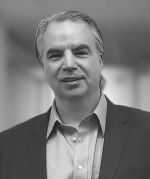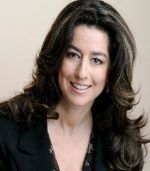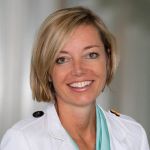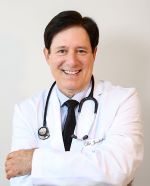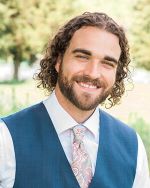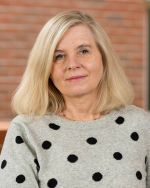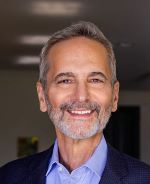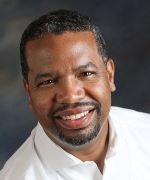
Brain Health Summit: Addressing the 4 M's of Brain Aging
JOIN THE LEADERS IN ADVANCED ANTI-AGING MEDICINE
More than 6 million Americans of all ages have Alzheimer's, with one in nine people aged 65 and older (11.3%) having Alzheimer's dementia. Yet while brain and mood disorders continue to accelerate, our current standard of care is not adequately slowing down the rates of neuroinflammation.
Clinical research has demonstrated that aging is not a uniform process and certain aspects of the nervous system have age-related vulnerabilities which cause the problems that are responsible for failures of the 4M’s of brain health:
Memory | Mood | Mobility | Mojo
All of these changes can be understood as a failure of multiple systems (memory loss, depressed or anxious mood, slowing of movements and falling and a general loss of motivation, vivacity, and sexual function) that can be individually improved for optimal brain health.
Rooted in the most groundbreaking research available and developed in direct response to the current neurological medical crisis, the Brain Health Summit will review these major aspects of brain function and address the common clinical issues encountered in daily practice. This cutting-edge meeting will feature the field’s most esteemed clinicians, researchers, and educators presenting the latest clinical knowledge through a practical format that you can integrate into your clinical care approach by Monday morning.
Target Audience
This course is designed for physicians (internal medicine, family medicine, endocrinologists, general medicine, and OB-GYN), pharmacists, physician assistants, nurses, nurse practitioners, and other healthcare professionals interested in learning about the advancements of preventative and anti-aging medicine.
Learning Objectives
- Understand the dimensions of aging brain function as they relate to the 4M’s (Memory, mood, mobility, and mojo).
- Understand that brain aging is partly related to an accumulation of external factors (exposome) and to internal factors, genome, transcriptome, proteome, and biome.
- Discuss that aging is also due to a program controlled by the biological clock which may be reset and provide protocols to reset functions.
- Review causes of brain failure that are reversible and discuss the approaches that are easy to deploy in clinical practice.
- Outline approaches that have been used to identify those individuals who are at risk for future brain failure and provide preventive measures.
Additional Information
| Attachment | Size |
|---|---|
| 151.22 KB | |
| 186.38 KB |
| Amylee Amos, MS, RDN, IFMCP Amylee Amos MS, RDN, IFMCP founded the Amos Institute to specialize in optimizing cognitive health through nutrition and lifestyle intervention. She is a registered dietitian nutritionist, and graduated with a Master of Science in Nutrition, Healthspan, & Longevity from the University of Southern California's Leonard Davis School of Gerontology. She has trained under Dr. Dale Bredesen and received certification in the Bredesen Protocol at the Buck Institute for Research on Aging. She is one of the only dietitians in the United States who is certified by the Institute for Functional Medicine, a new high level achievement for leading health providers. Amylee has trained at the Norris Comprehensive Cancer Center through Keck Hospital at USC, at Children’s Hospital Los Angeles and under world renowned biogerontologist and cell biologist Dr. Valter Longo at the University of Genoa, Italy. Amylee is a third year PhD candidate in Integrative and Functional Nutrition. Amylee works in corporate wellness, contracting with corporations large and small that wish to educate their employees on optimizing cognition and enhancing wellness. Her Cognitive Health Program is available online to the general public and is also offered to physicians who wish to provide their patients with a high level at-home program specifically designed for cognitive health support. The program is HIPAA compliant. Amylee is a regular guest lecturer at a number of universities, including the University of Southern California. |
| Garni Barkhoudarian, MD Garni Barkhoudarian, MD, is a board-certified, fellowship-trained neurosurgeon with a focus on skull base and minimally invasive endoscopic surgery. Dr. Barkhoudarian has particular interest and expertise in pituitary and parasellar tumors (Cushing’s disease, acromegaly, gigantism and prolactinomas), brain tumors, skull base tumors (including meningiomas, craniopharyngiomas, chordomas and schwannomas), intra-ventricular brain tumors, colloid cysts, trigeminal neuralgia, hemifacial spasm and other vascular compression syndromes. For virtually all tumors and intracranial procedures, Dr. Barkhoudarian applies the keyhole concept of minimizing collateral damage to the brain and its supporting structures using advanced neuroimaging and neuro-navigation techniques along with endoscopy to improve targeting and lesion visualization. Working with Drs. Marisa Chang and Daniel Franc, Dr. Barkhoudarian leads the Pacific Facial Pain Center, which offers a 360-degree approach to trigeminal neuralgia, hemifacial spasm, glossopharyngeal spasm and other facial pain syndromes. This includes medication therapy, percutaneous procedures, stereotactic radiosurgery and minimally invasive endoscopic microvascular decompression of the trigeminal or facial nerves. As Director of the Pacific Adult Hydrocephalus Center, he works with Dr. Daniel Franc to treat patients with various condition involving cerebrospinal fluid anomalies. This includes hydrocephalus (obstructive, acquired and normal pressure), colloid cysts, intraventricular tumors, cerebrospinal fluid leaks, intracranial hypotension and idiopathic intracranial hypertension. Dr. Barkhoudarian’s research interests include evaluating outcomes of pituitary and brain tumor surgery. He is also involved in the biomarkers research program for pituitary adenomas, meningiomas and metastatic brain tumors, as well as evaluating potential mechanisms and markers of invasive and atypical tumor progression. He is an investigator in a number of clinical trials evaluating the efficacy of various medical or chemotherapies for pituitary tumors and malignant brain tumors. As director of the JWCI / PNI Microdissection Anatomy Laboratory, he conducts neuroanatomical analysis, advancing the procedures and technology used for minimally invasive surgery. Research fellows from around the world perform observational fellowships for periods of 3-6 months at a time, allowing them to learn these techniques and apply them in their home countries. In collaboration with Dr. Daniel Kelly, PNI Director, Dr. Barkhoudarian also oversees the Clinical Neurosurgical Fellowship. |
| Dale Bredesen, MD An internationally recognized expert in the mechanisms of neurodegenerative diseases, Dr. Dale Bredesen’s career has been guided by a simple idea: that Alzheimer’s as we know it is not just preventable, but reversible. Thanks to a dedicated pursuit of finding the science that makes this a reality, this idea has placed Dr. Bredesen at the vanguard of neurological research and led to the discoveries that today underlie the ReCODE Report. Dr. Bredesen earned his MD from Duke University Medical Center and served as Chief Resident in Neurology at the University of California, San Francisco (UCSF), before joining Nobel laureate Stanley Prusiner’s laboratory at UCSF as an NIH Postdoctoral Fellow. He held faculty positions at UCSF, UCLA, and the University of California, San Diego. Dr. Bredesen also directed the Program on Aging at the Burnham Institute before joining the Buck Institute in 1998 as founding President and CEO. Dr. Bredesen’s research explores previously uncharted territory in explaining the physical mechanism behind the erosion of memory seen in Alzheimer’s disease, and has opened the door to new approaches to treatment. This work has led to the identification of several new therapeutic processes that are showing remarkable early results. Dr. Bredesen is a prodigious innovator in medicine, with over thirty patents to his name. Notably, he put much of his findings and research into the 2017 New York Times‘ Best-Seller, The End of Alzheimer’s. |
| Edward Bullmore, MB, PhD, FRCP, FRCPsych, FMedSci Ed Bullmore, MB, PhD, FRCP, FRCPsych, FMedSci trained in medicine at the University of Oxford and St Bartholomew’s Hospital, London; then in psychiatry at the Bethlem Royal & Maudsley Hospital, London. He moved to Cambridge as Professor of Psychiatry in 1999 and was Head of the Department of Psychiatry from 2014-2021. He is currently Director of the Wolfson Brain Imaging Centre, and Deputy Head of the School of Clinical Medicine. He is also an honorary Consultant Psychiatrist and Director of R&D in Cambridgeshire & Peterborough Foundation NHS Trust. From 2005-2019, he worked half-time for GlaxoSmithKline, as VP Experimental Medicine, latterly focusing on immuno-psychiatry, as described in his best-selling book “The Inflamed Mind” (2018). He has published more than 500 scientific papers which have been highly cited (Google h-index 175). He has been elected a Fellow of the Royal College of Physicians, the Royal College of Psychiatrists, and the Academy of Medical Sciences (and as AMS Treasurer since 2018). |
| Aubrey de Grey, PhD Dr. Aubrey de Grey is a biomedical gerontologist based in Mountain View, California, USA, and is the Chief Science Officer of SENS Research Foundation, a California-based 501(c)(3) biomedical research charity that performs and funds laboratory research dedicated to combating aging. In addition, he is Editor-in-Chief of Rejuvenation Research, the world’s highest-impact peer-reviewed journal focused on intervention in aging. He received his BA in computer science and Ph.D. in biology from the University of Cambridge. His research interests encompass the characterisation of all the types of self-inflicted cellular and molecular damage that constitute mammalian aging and the design of interventions to repair and/or obviate that damage. Dr. de Grey is a Fellow of both the Gerontological Society of America and the American Aging Association, and sits on the editorial and scientific advisory boards of numerous journals and organisations. He is a highly sought-after speaker who gives 40-50 invited talks per year at scientific conferences, universities, companies in areas ranging from pharma to life insurance, and to the public. |
| Michael Eselun, BCC Michael Eselun, (he/him) BCC, a Board Certified Chaplain, has been named the Dr. John Glaspy Chaplain in Oncology Care for the Simms/Mann‐UCLA Center for Integrative Oncology-- a role he has filled for twelve years. In addition to oncology work, he has worked extensively in palliative care, hospice care, and acute psychiatric care. Two-time TED-X speaker, Michael speaks extensively to healthcare professionals, patient populations and faith communities across the country. He weaves stories with vulnerability, insight, and humor-- stories to wrap around the deeper questions of life, mortality and meaning. He’s been widely published in journals, including two articles in the Journal of Pastoral Care and Counseling. He has also worked as an activist/educator addressing anti-LGBTQ bias in the larger community for well over 30 years. Michael was recently inducted into the UCLA-Semel Institute Eudaimonia Society, in recognition of having lived a meaning-driven life. You can find out more at www.michaeleselun.com. |
| Rafael Gonzalez, PhD Dr. Gonzalez obtained his Ph. D and BS from the University of California, Irvine where he studied, and his thesis addressed interactions of the immune system following spinal cord injury. In addition to his expertise in degenerative disorders involving the spinal cord, he has extensive experience in stem cell culture and biology from various sources. He has extensive knowledge in all aspects of cell biology and health where he teaches worldwide on regenerative medicine and maintaining immune health. Dr. Gonzalez is responsible for the development of clinical stem cell applications for several disease/trauma states. He leads four different investigational, new-drug applications with patented stem cell technology. Additionally, he works on the clinical development of immune based therapies using natural killer cells. He had led a reference laboratory in testing various regenerative medicine products. Dr. Gonzalez has been in the regenerative medicine field for more than 18 years and has several scientific publications. He has taught, spoken and led many conferences nationwide in the regenerative medicine sector. |
| Dayan Goodenowe, PhD Dr. Goodenowe’s research into the biochemical mechanisms of disease started in 1990. His curiosity about the biochemistry of life is as insatiable today as it was 30 years ago. In those 30 years, Dr. Goodenowe invented and developed advanced diagnostic and bioinformatic technologies, designed and manufactured novel and natural biochemical precursors, and identified biochemical prodromes of numerous diseases including Alzheimer’s disease and dementia, Parkinson’s disease, multiple sclerosis, stroke, autism, amyotrophic lateral sclerosis (ALS), schizophrenia, bipolar disorder, depression, and cancers of the colon, pancreas, ovary, breast, lung, kidney, liver, stomach, and others. And he is just getting warmed up. Dr. Goodenowe is now going beyond disease and the detection of biochemical dysfunctions to diagnose and the correction of biochemical dysfunctions to treat disease. Dr. Goodenowe’s new focus is to defeat the entropy of aging by creating strategic biochemical and biofunctional reserve capacity in advance of known disease risks such that the human body can maintain the physical and biological functions of life indefinitely and without disease. |
| Sabine Hazan, MD Dr. Sabine Hazan has over 22 years of experience in clinical trials and is the Founder and CEO at both Ventura Clinical Trials and Malibu Specialty Center. As Principal Investigator, Dr. Hazan personally oversees clinical trials for high profile studies on diseases such as Hepatitis C, Hypercholesterolemia, and Pancreatic Cancer. Her companies are leaders in Cardiovascular studies, Endocrine disorders, Infectious Diseases, Skin disorders and Gastrointestinal diseases and employ cutting edge technology and research practices to provide the best quality in drug therapy research. The first woman ever accepted into the University of Florida as a Clinical Gastroenterology Fellow, Dr. Sabine Hazan is a pioneer in the medical field. Board certified in Gastroenterology, Hepatology, and Internal Medicine, Dr. Hazan has published articles in numerous prestigious medical journals, including theJournal of Duval County Medical Association and Gastroenterology, and won several awards, such as the Best Fellow Scientific Presentation and Dean’s Research Award awarded by University of Florida. In addition, Dr. Sabine Hazan is an acclaimed speaker and presented symposiums for influential medical organizations like the American Society for Gastrointestinal Endoscopy and Astra Merk, Inc. Dr. Sabine Hazan is the former Chief of Medicine at Community Memorial Hospital and an active consultant for CRG. She currently retains medical licenses in three states (California, Florida, and New York). |
| Tereza Hubkova, MD, ABIM, ABIHM Dr. Tereza Hubkova, board certified in internal medicine as well as integrative and holistic medicine—and a current candidate for functional medicine—has been compassionately helping patients maintain or reclaim their health through healthy lifestyle, natural approaches, use of herbs, and a variety of healing traditions, along with the best of Western medical practices. She seeks to get to the root of health issues through thorough, unrushed attention to the patient’s story, targeted examination, and with the help of advanced medical testing, where appropriate. Dr. Hubkova has studied a variety of healing traditions and techniques and has been actively promoting lifestyle medicine for nearly two decades. She believes that attention to our spiritual side is as important as attention to our organ systems, and that getting to really know and understand the person seeking her help, rather than just treating the diagnoses, is where true healing lies. After 12 years seeing patients from around the world, lecturing, and teaching lifestyle medicine at Canyon Ranch’s Integrative Health Center in Lenox, MA, she relocated to Overland Park, KS to lead a unique, truly integrative medical center, AdventHealth’s Whole Health Institute, as its medical director. Besides seeing patients, she enjoys educating lay audiences as well as other medical professionals. She has written for the American Journal of Lifestyle Medicine and the Journal of Active Aging and frequently lectures at local as well as national conferences, such as the Integrative Healthcare Symposium in New York and Harvard’s Lifestyle Medicine courses in Boston. |
| Sheldon Jordan, MD Sheldon Jordan, MD is a clinical associate professor of neurology at UCLA and USC. He has a private practice in Santa Monica, California. He has taught two interventional programs at UCLA and helped establish the stroke service at UCLA and Providence Saint John’s Health Center. He has authored numerous books and journal articles, and he lectures nationally and internationally on brain health and regeneration. His newest book Regenesis: The Brain Doctor’s Guide to Health will be available this summer. He specializes in advanced imaging techniques, interventions for brain and nerve injury, anti-aging of the brain, and regenerative medicine. As chief investigator for The Regenesis Project, Dr. Jordan advances the boundaries of neurological care through the exploration of cutting edge and targeted approaches for brain health and regeneration. He has ongoing laboratory research which he is translating from the bench to the beside. Dr. Jordan is also an avid photographer and artist and has illustrated books and presented artwork in various galleries. His diverse background is the foundation of his unique and comprehensive approach to healthcare. |
| Taylor Kuhn, PhD Dr. Taylor Kuhn received his Ph.D. in Psychology from the University of Florida. Throughout his career, he underwent extensive training in outpatient, inpatient, and perioperative neuropsychological assessment. He completed his clinical internship at the Boston Consortium for Clinical Psychology with fellowships at Harvard and Boston University. He also completed postdoctoral fellowship at UCLA where he was both chief research and assistant chief clinical fellow. Specializing in the intersection of neuromedical illness and mental health treatment, Dr. Kuhn provides outpatient neurocognitive and psychodiagnostic assessment along with ongoing managed care. These services are available to adults with a broad array of neurological and psychiatric concerns. He also provides pre-surgical, rehabilitation and geriatric psychological consultations as well as cognitive rehabilitation and psychotherapy. Dr. Kuhn also offers Cognitive Style testing informing decisions on school, work, teams, relationships and wellness. Finally, he co-founded and manages The Integrated Clinic. Dr. Kuhn holds a research faculty appointment at UCLA. He has a growing record of accomplished research that bridges the gap between neuropsychology and neuroimaging to investigate relationships between brain structure and function across multiple neurodegenerative disorders, neuromedical illnesses, healthy aging and intellectual giftedness. More recently, his research has expanded to include neuromodulation techniques, such as focused ultrasound, as a non-invasive method for improving cognitive performance and emotion regulation. |
| Maiken Nedergaard, MD Dr. Nedergaard is Dean’s Professor and Co-Director of the Center for Translational Neuromedicine at the University of Rochester Medical Center (URMC) in Rochester, NY and Professor of Glial Cell Biology at the Center for Translational Neuromedicine at the University of Copenhagen (KU), Denmark. Her interests span from neuron-glia interactions to the role of astrocytes in aging, small vessel disease, stroke and cerebral blood flow. Her group described the glymphatic system, a brain equivalent of the lymphatic system within which cerebrospinal fluid diffuses rapidly and mixes with interstitial fluids, thereby filtering metabolic byproducts that accumulate due to neuronal activity. The glymphatic system dramatically increases its activity during sleep compared to waking –brain cleaning and detoxification is thus facilitated during sleep, providing a novel and direct explanation for what we all generally consider sleep’s restorative effect. Dr. Nedergaard is an elected member of the Royal Danish Academy of Sciences and Letters, Royal Academy of Pharmacy of Spain, and Academia Europaea. In 2015 she received the Newcomb Cleveland Prize, from AAAS and the Alzheimer Prize in Denmark. In 2018, she received The Fernström Nordic Prize in Medicine and in 2020 the Thomas Willis Stroke Award. |
| Gary Small, MD Gary Small, MD, is Chair of Psychiatry at Hackensack University Medical Center, and Behavioral Health Physician in Chief for Hackensack Meridian Health. Prior to his move to New Jersey, he was Professor of Psychiatry at UCLA where he also directed the university’s Longevity Center. Dr. Small has studied and developed lifestyle and memory training programs for improving cognition and healthy aging, which have made available throughout the U.S. and abroad in senior centers, hospitals, and other community sites. Dr. Small has authored over 500 scientific works and received numerous awards and honors, including the American Psychiatric Association’s Weinberg Award for Excellence in Geriatric Psychiatry. Scientific American magazine named him one of the world’s top 50 innovators in science and technology. He is the author of 12 popular books, including international bestseller, The Memory Bible. |
| Vernon B. Williams, MD, FAAN Dr. Williams is a sports neurologist and founding director of the Center for Sports Neurology and Pain Medicine at the prestigious Cedars-Sinai Kerlan-Jobe Institute in Los Angeles, CA. He received his Medical Doctorate from the University of Michigan in 1992 and in 1993 completed an internship in internal medicine at Henry Ford Hospital in Detroit, MI. Dr. Williams underwent residency training in neurology at the University of Maryland, Baltimore in 1996 and rounded out his training with an interventional pain fellowship at The Johns Hopkins Hospital in Baltimore, MD in 1997. Next, Dr. Williams established his private medical practice with the Kerlan-Jobe Orthopaedic Clinic and provides for a wide range of neurological needs to his patients, including concussion prevention, treatment and management, neurological sports performance, and chronic pain management. Dr. Williams became a contributor to U.S. News and World Report in 2017, covering a range of brain health, sports performance and chronic pain-related topics in the publication’s online Health Care/For Better section. He serves as a neurological medical consultant to local professional sports organizations, such as the Los Angeles Rams, Los Angeles Dodgers, Los Angeles Lakers, Los Angeles Clippers, Los Angeles Kings and Los Angeles Sparks, and also assists local college and numerous high school and youth sports/club athletic teams in this capacity. He is a three term Gubernatorial appointee to the California State Athletic Commission and former two-term Chair of the American Academy of Neurology Sports Neurology Section. Dr. Williams is a member of multiple professional medical societies including the American Academy of Neurology, the American College of Sports Medicine, the North American Neuromodulation Society, and the American Society of Interventional Pain Physicians. He has received numerous public accolades including designation as a Super Doctor in Sports Medicine and Neurology since 2016. Dr. Williams is also a frequent medical expert contributor to mainstream media publications and news outlets, including the U.S. News & World Report, Los Angeles Times, Sports Illustrated, ESPN News, and Huffington Post and local and national television news outlets including Ivanhoe National Broadcast News as well as CBS, NBC and ABC television affiliates. |
FOR PHYSICIANS
This activity has been planned and implemented in accordance with the accreditation requirements and policies of the Accreditation Council for Continuing Medical Education (ACCME) through the joint providership of The George Washington University School of Medicine and Health Sciences and The American Academy of Anti-Aging Medicine. The George Washington University School of Medicine and Health Sciences is accredited by the ACCME to provide continuing medical education for physicians
The George Washington University School of Medicine and Health Sciences designates this live activity for a maximum of 16 AMA PRA Category 1 Credits™.
Available Credit
- 16.00 AMA PRA Category 1 Credit™The George Washington University School of Medicine and Health Sciences is accredited by the Accreditation Council for Continuing Medical Education (ACCME) to provide continuing medical education for physicians.
- 16.00 Completion

 Facebook
Facebook X
X LinkedIn
LinkedIn Forward
Forward
